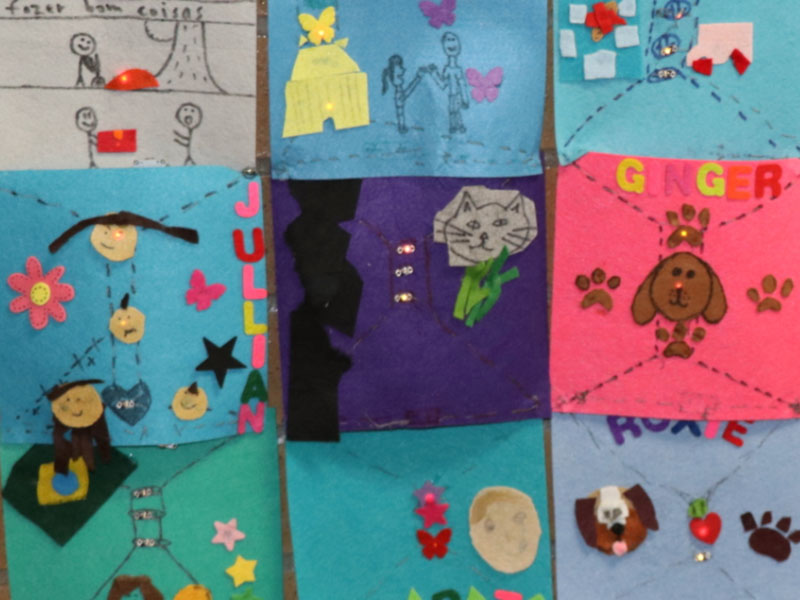Dr. Kristin Searle and Dr. Colby Tofel-Grehl Receive NSF Grant

Projects created by students as part of Searle and Tofel-Grehl's curriculum
Dr. Kristin Searle of the department of Instructional Technology and Learning Sciences and Dr. Colby Tofel-Grehl of the School of Teacher Education and Leadership, along with colleagues at Montana State University, were recently awarded a grant from the National Science Foundation to develop culturally responsive computing curricula for teachers and students in grades 4-8. The project, titled “CS for All,” works directly with the Montana Office of Public Instruction, tribal entities, teachers, and other stakeholders to gather research examining how Montana's Indian Education For All (IEFA) curriculum and the new Montana Computer Science standards can be brought together to develop a culturally responsive computing curriculum. The collaborative award is just shy of one million dollars.
CS for All builds on the Elementary STEM Teaching Integrating Technology and Computing Holistically (ESTITCH) program by enhancing computer science learning through storytelling and electronic textiles. Electronic textiles combine fabric crafts with programmable microcontrollers and a variety of sensors and actuators, resulting in light up, wearable textiles.
By bringing these two novel approaches together and aligning them with Montana's new computer science standards, the curriculum is uniquely tailored to the stories and histories of Montana students and teachers. This work makes important contributions to the development of a culturally responsive computing curriculum that connects with Montana students. "Additionally," Searle said, "by allowing students to learn and talk more about their own history and culture through computer science and STEM, this curriculum can support teachers by giving them the tools that they need to talk about hard things with their students."
While talking about her experiences with the project, Searle said, "I absolutely love working with the students and teachers and watching them get excited about computer science. The stories that they tell have given both the students and the teachers opportunities to build better relationships and create a better classroom atmosphere." Searle related the experience of a student who told their story about having open-heart surgery the previous year. Nobody in the classroom had known that this particular student had ever had surgery, and the sharing of that story helped to develop a stronger sense of community within the classroom. "There is power in storytelling and allowing people to tell their own stories," said Searle.

